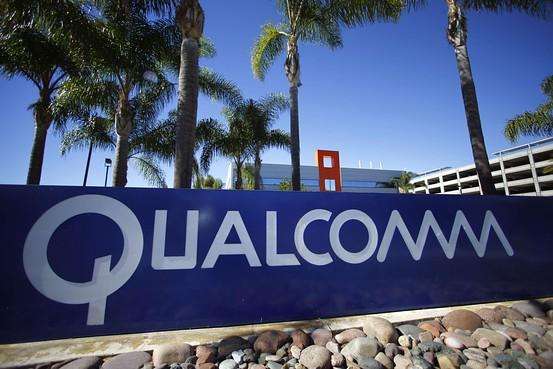[Global Network Technology Reporter Chen Jian] October 13 news, US company Qualcomm (Qualcomm) in Taiwan because of its alleged abuse of market status, by the China Taiwan Fair Trade Commission to open a total of 23.4 billion New Taiwan dollars (about RMB 5.09 billion) fines. Qualcomm responded positively and appealed.

In February 2015, China Taiwan initiated investigations on Qualcomm and recently made a penalty decision of 23.4 billion Taiwan dollars. According to the China Taiwan Fair Trade Commission, Qualcomm violated Article 9 of the "Fair Trade Law" of China's Taiwan. Qualcomm's company does not provide mobile phone chips without signing an exclusive transaction contract. The committee pointed out that Qualcomm has occupied a unique position in the market of mobile communications standard baseband chips such as CDMA, WCDMA, and LTE, thereby rejecting peers authorized to chip competition industries, and setting restrictive clauses or adopting unauthorized licenses. Do not compete with the chip, which will damage the normal market competition of the chip.
Qualcomm has a large number of patents on communication technologies such as CDMA and LTE. Sources pointed out that Qualcomm's move has caused Taiwan's MediaTek and other chip makers to bear huge patent pressure each year. The China Taiwan Fair Trade Commission imposed a penalty of 23.4 billion Taiwan dollars (approximately 5.09 billion yuan) on Qualcomm, which was the heaviest fine since the establishment of the anti-trust agency in Taiwan. Taiwan’s regulators stated that Qualcomm had violated antitrust regulations for at least seven years. During this period, the company received NT$400 billion (US$13.23 billion) from local companies.
Recently, Qualcomm officially responded on Wednesday in the United States. Qualcomm stated that the content of the ruling of the Taiwan Fair Trade Commission was unreasonable. After the official resolution was issued, Qualcomm will seek to suspend any behavioral remedies required in the enforcement decision and will Appeal to Taiwan court.
Qualcomm’s appeal this time is mainly due to the fact that the amount of the fine and its calculation method do not recognize it. Qualcomm believes that the amount of this ticket does not have any reasonable relationship with Qualcomm’s revenue or activities in Taiwan. Some analysts pointed out that this time the ticket is almost impossible for Qualcomm to recover, but the specific amount may be recalculated after Qualcomm’s appeal.
As the largest holder of global communications technology patents, Qualcomm has been relying on patents to obtain huge revenues. However, due to the control and monopolization of a large number of communications patents, Qualcomm has been subject to antitrust investigations several times in the past few years. In 2014 and 2016, Qualcomm had already eaten two huge tickets in China and South Korea.
On February 10, 2015, the National Development and Reform Commission dealt with Qualcomm’s monopolistic behavior of excluding and restricting competition by abusing its dominant market position, and ordered Qualcomm to stop related illegal activities, and imposed a penalty of 8% on China’s market sales in 2013. A total of 6.088 billion yuan will also be rectified in violation of the law. According to reports by CCTV, relevant staff of the National Development and Reform Commission stated that the fine of 6.088 billion yuan had been fully paid on yesterday. This is China's largest anti-monopoly fine. However, after China's anti-monopoly punishment against Qualcomm was made, Chinese mobile phone companies have chosen to enter into cooperation with Qualcomm, including the most important of these patents, which in turn promoted its profit in the second quarter of 2016 to grow by more than 11% year-on-year.
Also in 2016, South Korea's anti-monopoly punishment against Qualcomm will be fined 5.9 billion yuan, setting a record for anti-monopoly fines in South Korea. South Korea’s penalty is heavier than China’s. According to reports, Qualcomm was able to obtain about 8.5 billion yuan in authorization fees from Korean manufacturers, which is equivalent to 69.4% of the annual authorization fees it received in Korea. China’s anti-monopoly penalty against Qualcomm is 6 billion yuan, but Qualcomm’s annual income from China is as high as US$12 billion, which means that the fine is only equivalent to 7.7% of its revenue in China.
In January this year, the US Federal Trade Commission (FTC) filed a lawsuit against Qualcomm, accusing Qualcomm of monopolizing the market. Soon after, Apple filed a $1 billion lawsuit against Qualcomm and accused Qualcomm of consistently insisting on charging unfair patent licensing fees for technological innovations unrelated to them. The European Commission issued two statements on Qualcomm’s anti-monopoly investigation as early as July 2015. The investigation focuses on whether Qualcomm will curb competition by taking advantage of its strong position in the baseband chip market. If the investigation is established, Qualcomm may face a huge fine of 5.8 billion euros.
This time China’s Taiwan has issued such a high amount of fines, it is bound to have a certain inhibitory effect on the development of Qualcomm, and Taiwan’s domestic chip maker MediaTek will benefit.
12V Led Television,Television For Home,Tv Home Appliances ,Dc Lcd Led Tv
NANTONG RONGCHANG IMPORT&EXPORT CO.,LTD , https://www.ergsolarcn.com